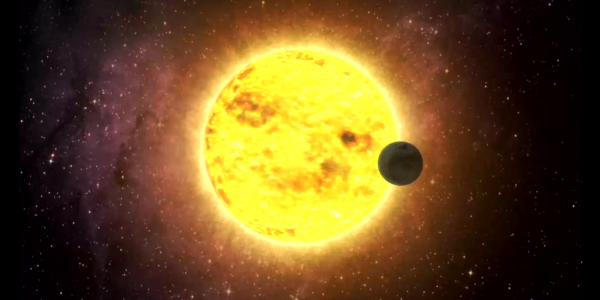St. Louis Astronomical Society Meeting: Tracking Exoplanets From Home
Laurie and Kimberly Sibbald will be featured at the IN PERSON and virtual September meeting. The meeting will be in McDonnell Hall, Room 162, Washington University in St. Louis, and via Zoom.
Exoplanets are planets that orbit other stars. They are difficult to detect, both because they only reflect light and because they lie within the glare of the stars they orbit. One detection technique involves measuring the dip in starlight during an exoplanet transit. The transit occurs when the planet’s orbit carries it between our line of sight and its star. The amount of starlight blocked can indicate the exoplanet’s size and sometimes other characteristics. Telescopes and special cameras and instruments are now available to amateur astronomers that can allow them to detect exoplanets using their own equipment. Laurie Sibbald will explain how he has already measured a number of exoplanet transits. One of the most important new technology advances is the development of cooled CMOS imaging cameras that allow even modest aperture telescopes to produce data for faint stars.
Mr. Sibbald explains, “… we can measure transits not only of well established ‘confirmed’ planets around distant stars but also new candidate planets. Examples will be shown of a few of these including exoplanet candidates newly identified by NASA’s TESS (Transiting Exoplanet Survey Satellite).”
Kimberly Sibbald is an experienced landscape photographer. She also does nightscapes, including wide-field Milky Way scenes. She is now extending her work to include photography of stars, nebulae, and galaxies. Laurie Sibbald is an astrophotographer with expertise in digital image processing.
The St. Louis Astronomical Society is an organization for individuals interested in astronomy and telescopes. The public is invited to attend its meetings, telescope observing sessions, and special events. For more information about Astronomical Society events, please visit www.slasonline.org or call 314-962-9231. The event, cosponsored by NASA's Missouri Space Grant Consortium at Washington University, is open to the public free of charge.
McDonnell Hall is on the south side of the Danforth Campus, One Brookings Drive, St. Louis 63130. The closest parking is street parking on Forsyth Boulevard or the East End Garage. Parking is free for entry after 5:00 pm in yellow or visitor parking spaces only. If you prefer to attend virtually, non-members of SLAS may request the Zoom link here:

